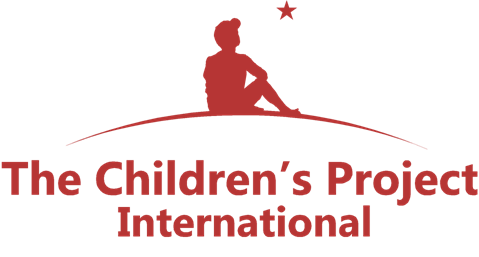
Development Aid
Food and Clothing
There are 1.02 billion undernourished people in the world today. That means one in nearly six people do not get enough food to be healthy and lead an active life. Hunger and malnutrition are the number one risk to the health worldwide—greater than AIDS, malaria and tuberculosis combined. Food aid is the main international safety net for many low-income countries. It has been used for development purposes, but its major role has been as an instrument to offset food shortages in low-income countries, where fluctuations in domestic food production threaten food security. In these countries, internal mechanisms, such as grain stocks, are expensive, and cash reserves are often inadequate to bridge the food gaps.
Many children in developing countries grow up barefoot and without adequate clothing. Whether at play, doing chores or going to school, these children are at risk. A leading cause of disease in developing countries is soil-transmitted disease, which can penetrate the skin through bare feet. Many times children can’t attend school because they are missing part of their uniform. If they don’t have proper clothing, they don’t go to school. TCPI distributes food and clothing to children in need.
Clean Water, Sanitation and Hygiene
The objective of TCPI in the area of water, sanitation and hygiene is to contribute to the realization of children’s rights to survival and development by providing increased equitable and sustainable access to, and use of, safe water and basic sanitation services, and to promote improved hygiene. Almost fifty percent of the developing world’s population—2.5 billion people – lack improved sanitation facilities, and over 884 million people still use unsafe drinking water sources. Inadequate access to safe water and sanitation services, coupled with poor hygiene practices, kills and sickens thousands of children every day, and leads to impoverishment and diminished opportunities to thousands more.
Many children in developing countries grow up barefoot and without adequate clothing. Whether at play, doing chores or going to school, these children are at risk. A leading cause of disease in developing countries is soil-transmitted disease, which can penetrate the skin through bare feet. Many times children can’t attend school because they are missing part of their uniform. If they don’t have proper clothing, they don’t go to school. TCPI distributes food and clothing to children in need.
Poor sanitation, water and hygiene have many other serious repercussions. Children – and particularly girls – are denied their right to education because their schools lack private and decent sanitation facilities. Some 443 million school days are lost annually to water-related illness, millions of women and girls spend up to 2 hours a day collecting water.
TCPI works around the world to improve water supplies and sanitation facilities in schools and communities, and to promote safe hygiene practices. All TCPI water programs are designed to contribute to the Millennium Development Goal for water and sanitation: to halve, by 2015, the proportion of people without sustainable access to safe water and basic sanitation.
Primary Medical Care
TCPI delivers life-saving medicines and medical supplies to help more people live longer and healthier lives in some of the most marginalized and under-served people across the globe. Close to 2 billion people — one-third of the world’s population — have inadequate access to medicines; the majority of them live in developing countries. The people living in these areas are not just victims of news-making catastrophes; they also suffer from ongoing “silent disasters” caused by grinding poverty and a lack of access to medicines. Poor health and poverty are inextricably linked. In vulnerable areas, children die from preventable or treatable illnesses, adults with debilitating chronic conditions can no longer provide for their families and whole communities are threatened by infectious diseases.
Resource-constrained health care institutions serving the poor communities often lack sufficient medicines and supplies to diagnose conditions and provide life-saving and life-changing treatment. These shortages originate from economic limitations as well as disruptions in supply chains, logistics challenges and political and administrative obstacles. To provide quality care for indigent patients, the health care institutions and health care professionals have an ongoing need for medicines and other medical assistance. Without medicines, health care institutions lack what the UN Millennium Project calls “the most significant tool that society possesses to prevent, alleviate and cure disease.”
TCPI delivers essential tools, which include: prescription and over-the-counter medicines, nutritional supplements, surgical and wound care supplies, hospital supplies, and diagnostics and laboratory supplies. The recipients of our medical assistance travel to some of the poorest parts of the world, where even basic medical care is often non-existent.
Education
Promoting economic growth and ensuring social stability requires a strong education system that guarantees equitable access and quality to all citizens. Literacy—the ability to read and write—is a basic skill for people to live and work in today’s world. Yet more than 700 million adults are not literate, primarily in developing countries. About 72 million children who should be in school are not.
For this reason, TCPI assists to improve pre-primary, primary, and secondary levels of education. Special emphasis is placed on improving educational opportunities for girls, women and other underserved and disadvantaged populations. The pursuit of universal access to education places enormous stress on already burdened education systems across the world.
Recruiting, training, and supporting enough teachers to provide quality learning can be particularly challenging. Primary school enrolment in developing countries is among the lowest in the world. Limited funding, lack of adequate teachers, class rooms and learning materials adversely affect the educational environment across the globe. TCPI focuses on increasing access to quality basic education in countries through scholarships, textbooks and teacher training programs.
